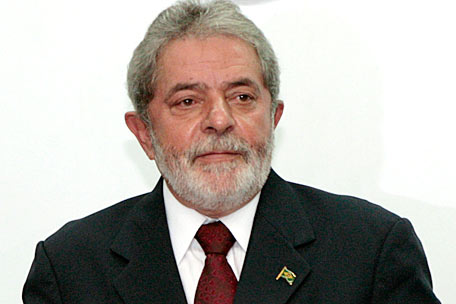Governments Mask Internet Lock Down with ‘Convenience’
January 10, 2011
Obama readying Internet ID for Americans. Will it be mirrored elsewhere?
By Luis R. Miranda
The Real Agenda
January 10, 2011
Efforts to accelerate internet control and ´harmonize´ standards has taken a leap forward. United States president Barack Obama has proposed that the Commerce Department head a cybersecurity initiative to come up with an internet ID for all Americans.
Although the government has called this proposal a way to decentralize security on the web, the White House Cybersecurity Coordinator, Howard Schmidt labeled it ‘the absolute perfect spot in the U.S. government’ to centralize policy to create an ‘identity ecosystem’.
In addition to masking this new attempt as a convenient measure for internet users, the U.S. government wants to divert attention by placing the Commerce Department at the forefront. According to CNET.com, the fact it’s the Commerce Department and not Homeland Security or the National Security Agency the ones supervising the project, it means that the government does not intend to exercise control whatsoever, but instead it will play the role of an ‘organizer’. But the move does not please anyone. Government intervention has proven to be a bad idea in almost all matters. The Internet has been successful due to the fact it is free. What other proof do the controllers and their advocates need to understand it?
Government control over any aspect of the world wide web does not need to be direct or offensive in order to be effective. But if more conclusive proof is necessary to show an explicit intention to control the web, skeptics need nothing more than to read the Cybersecurity Act. Privacy and civil rights groups should be worried, and so does everyone else. This seemingly mild initiatives are the start of what governments, politicians and private industry heads have been calling for: complete control of the internet, its protocols and content.
‘The announcement came at an event today at the Stanford Institute for Economic Policy Research, where U.S. Commerce Secretary Gary Locke and Mr. Schmidt spoke,’ cites CNET. With this announcement, it is clear the Obama administration is looking forward to implementing the directives contained in the Cybersecurity Act which include government control over who accesses, navigates, posts content and monitors the net. The law also gives the president, whoever it is, the power to simply shut down the web if it considers it necessary to protect national security interests.
Commerce Secretary Gary Locke, says the government is not talking about a national ID card. “We are not talking about a government-controlled system. What we are talking about is enhancing online security and privacy and reducing and perhaps even eliminating the need to memorize a dozen passwords, through creation and use of more trusted digital identities.”
Another fallacy in regards to an Internet ID is that there will not be a centralized database. The government already keeps databases and no-fly lists on anyone it wants. Another database would not be a surprise. The creation of an ID will be like the social security number for the Internet. It will be the instrument by which all web-based activities will be registered and kept for further snooping. All sales, purchases, exchanges and other activity will be stored. This internet ID will be probably merged with the National and / or International ID Card to reveal a unique identity by which all people will be accounted for.
The statement that anonymity or pseudoanonimity will still be possible is hilarious. It is not possible as things stand today. Can anyone believe that the controllers in the Department of Homeland Security, the Defense Department and the NSA will let the Commerce folks pull the strings of the strongest beacon of liberty in the planet? I doubt it. There´s no need for public or private rivalry among government agencies for the public to notice who controls what.
In 2009, the director of Homeland Security’s National Cybersecurity Center, resigned saying that the NSA effectively controlled the cyber world though the use of , among other things, ‘technology insertions’.
Deceitful Speech
In an article posted on Wired.com, writer Ryan Singel begins his thoughts by saying that an internet ID will be useful to dodge the ‘nightmare of trying to control your online identity’. Singel´s complete article is here. What he labels as a better way to deal with internet threats and inconveniences, is nothing more than what search engines and known social networks have already implemented: The ability to use one password to access several websites and their services. He cites Facebook, Twitter and Yahoo, among others.
But if this tool already exists, why do we need the government to create another one? “One can also imagine having an identity provider that enables you to tie your home address, e-mail address and mobile phone number together so you could securely log in to the Social Security Administration and request a new Social Security card. The government would be able to mail the card to your house, with strong assurance you actually live at that address.” If this does not spell centralization, I don’t know what would.
As many privacy advocates point out, the government does not have a way to pull this off by itself. That is why private enterprises are the ones that offered it to consumers. What the government’s inability means, is that private corporations will be empowered and legally enabled to collect, store and basically do whatever they want with any and all private information. Not that this does not happen already.




